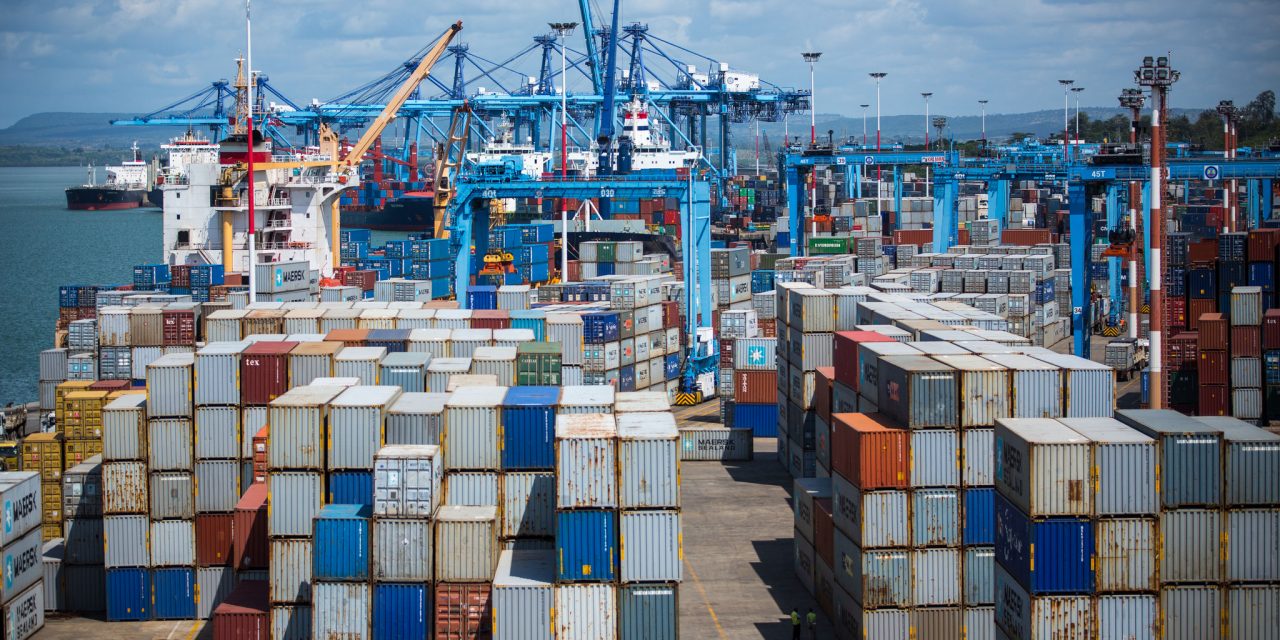The value of domestic exports goods fell by 4.3 percent from Ksh664.4 billion (USD6,152.5 million) in December 2018 to Ksh636.1 billion (USD5,890.7 million) in December 2019, the Kenya Economic Report 2020 shows.
According to the report authored by the Kenya Institute of Public Policy and Research (KIPPRA), overall export earnings grew by 1.1 percent from Ksh1.26 trillion (USD1.17 billion) in January 2019 to Ksh1.28 trillion (USD11.87 billion) in May 2019 before declining to Ksh1.22 trillion (USD11.31 billion) in December 2019 representing a 3.5 percent decline compared to Ksh1.26 trillion (USD11.72 billion) recorded in December 2018.
The fall in export earnings is attributed to a reduced quantity of agricultural exports. Total export earnings in 2019
amounted to Ksh15 trillion (USD139.7 billion).
During the same period, the value of goods imports fell by 0.8 percent from Ksh1.76 trillion (USD16.32 billion) in December 2018 to stand at Ksh1.74 trillion (USD1.61 billion) in December 2019.
The decline in imports is attributed to reduced food imports due to favourable weather conditions in 2019.
However, the value of service exports fell by 2.7 percent between December 2018 and December 2019 while services imports fell by 1.7 percent over the same period.
The value of coffee exports fell by 8.3 percent from Ksh1.9 billion in February 2019 to Ksh1.7 billion in February 2020 while tea exports grew by 14.4 percent. Horticultural exports dropped by 2.6 percent from Ksh 10.22 billion in February 2019 to Ksh9.95 billion in February 2020.
Diaspora Remittances
Diaspora remittances recorded a 10 percent growth from Ksh21.5 billion (USD 199.1 million) in February 2019 to Ksh23.65 billion (USD219.0 million) in February 2020.
Diaspora remittances have grown over time to surpass earnings from traditional exports. In the last decade, diaspora remittances grew from 1.9 percent of the country’s Gross Domestic Product (GDP) in 2008 to 3 percent of GDP in 2019.
Earnings from horticulture and tea show a downward trend from 3.4 and 3.0 percent of GDP in 2008 to 1.3 and 1.2 percent of GDP in 2019, respectively. Exports from coffee constitute an average of only 0.4 percent of GDP.
Diaspora remittances are important as they finance consumption and investments.
In 2019, the current account deficit worsened in absolute terms, it remained at 5.8 percent of the GDP as in 2018.
This is attributed to reduced growth in exports by 2.9 percent while imports increased by 2.3 percent due to an increase in import of petroleum and machinery and other capital equipment.













Leave a comment